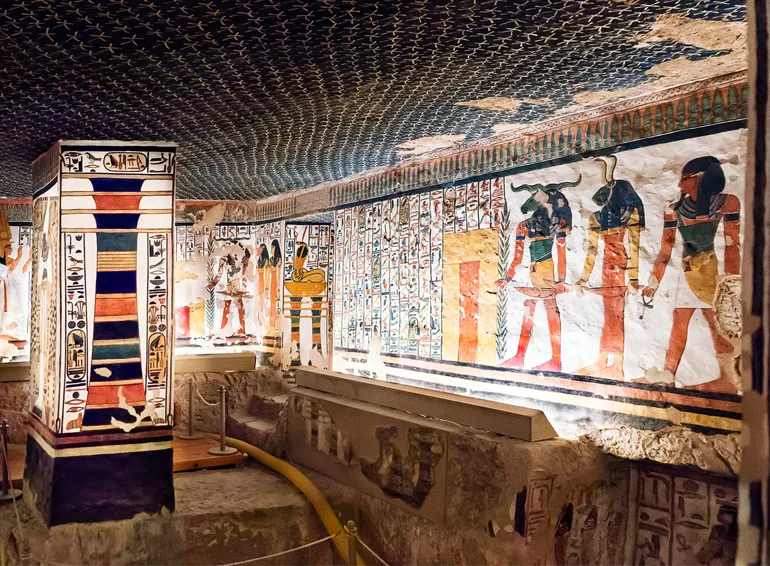Recent News

9
Oct
The fascinating culture of Egypt
The fascinating culture of Egypt
The culture of Egypt is one of the oldest civilizations of humanity and is still characterized by great fascination today. Some areas have shaped the country's identity for thousands of years.
History and architecture
Egyptian history dates back to the 4th millennium BC. One of the most important eras was the Old Kingdom between around 2700 and 2200 BC. Under Pharaoh Khufu, magnificent pyramids such as the Great Pyramid of Giza were built.
The architectural masterpieces of the ancient Egyptians remain fascinating to this day. In addition to the three great pyramids in Giza, the Temple of Karnak and the Valley of the Kings in Luxor are impressive. The perfect stonemasonry and precise measurements are remarkable.
Thousands of years later, mosques and minarets as well as churches and monasteries still shape the cityscape. The mostly white buildings with shades of blue fit harmoniously into the desert landscape.
Art and literature
Already in early times, distinctive art flourished in Egypt. Detailed everyday scenes can be found on wall paintings and reliefs in the tombs.
The finely crafted hieroglyphs as well as sculptures and statues, which were often painted with artistic colors, are also famous. Finds such as the bust of Nefertiti continue to delight visitors in their exhibitions to this day.
The ancient Egyptians also left literature, such as the Book of the Dead or textbooks, in temples and tombs. People wrote on papyrus rolls with ink.
religion
Religion has always been a central component of culture. The main god was the sun god Ra, but Isis, Osiris and Horus were also worshiped.
The idea of the afterlife was equally significant. Mummification of the dead was intended to enable them to travel to the realm of the blessed dead. Solemn processions and sacrifices were part of everyday religious life.
Traces of this rich heritage can still be found in the temple cities of Luxor and Karnak today. Although Islam predominates, ancient traditions have left a lasting impact on Egypt's culture.
The culture of the present
Even today, some peculiarities have a lasting impact on everyday life in Egypt:
Family ties
The extended family still plays an important role in Egypt. Several generations often live under one roof and support each other. Children usually stay in their parents' home until they get married.
hospitality
Traditionally, Egyptians are very hospitable. It is customary to receive and entertain visitors. Foreign travelers are also warmly welcomed.
music and dance
Oriental dance and music, such as the oriental lute Oud, are still very popular. The musicians and dancers from Cairo and Alexandria are famous.
In Egypt, impressive archaeological remains are combined with still-living customs. This is what makes the country so fascinating even today.
Here are some additional aspects about Egyptian culture:
Language: Although English and French are taught, Arabic is the most widely spoken language in Egypt. Although ancient hieroglyphs can only be found in museums today, they inspired today's Arabic script.
Food: Traditional dishes include Ful Medames (boiled beans), Kushari (noodle dish), Fatta (lamb on pita) and Molokhia soup. Dates, yogurt, laban and cream are also popular.
Clothing: In rural areas, many men still wear the galabija, a loose cotton garment. Women prefer simple, elegant dresses and headscarves.
Crafts: Famous are the pottery from Aswan, Coptic art as well as carpets, leather goods and jewelry. Many craftsmen preserve old traditions.
Festivals: The main festivals are the Islamic sugar festival Id al-Fitr and the festival of sacrifice Id al-Adha. Christmas and Easter also have meaning for Christians.
The Nile: The longest river in Africa has shaped Egypt for thousands of years. To this day it is central to agriculture, transport and recreation.
Desert tourism is booming: luxury lodges, hiking, camel riding and stargazing are experiencing a boom in the Sahara.



